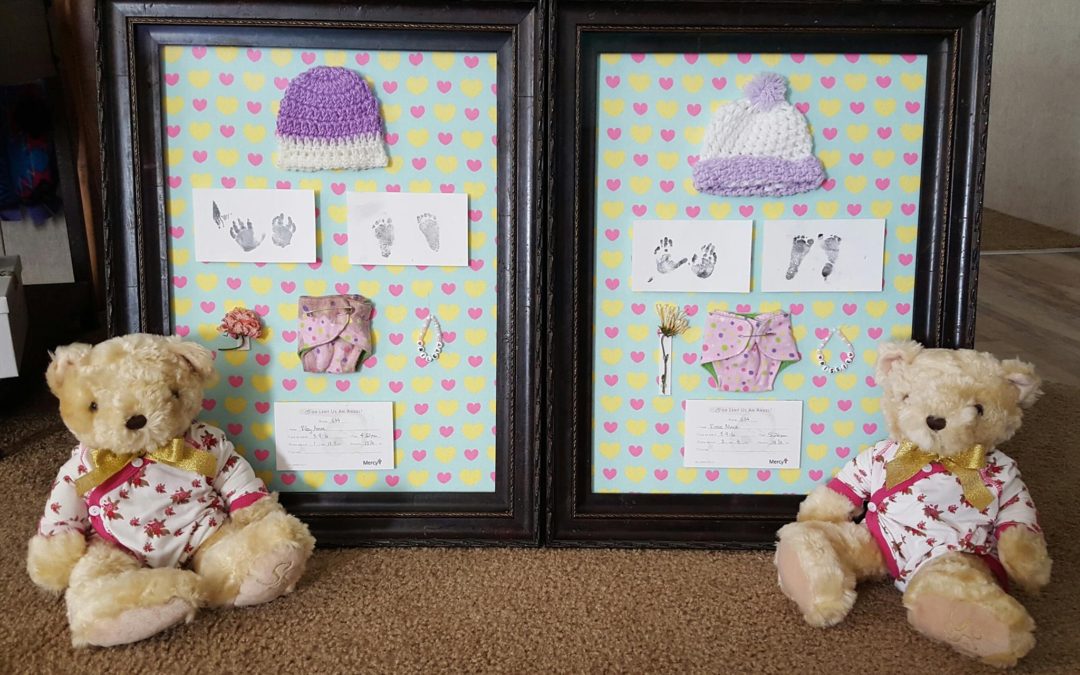Do you have a friend or family member who lost their baby or babies? Do you struggle to know what to say and how to act around them? Many families go through this loss, and we asked them to share what they wish their family and friends knew.
1 – Parents who have lost a child are still parents. One mom who lost both her twins to TTTS bravely wrote the following on Mother’s Day:
I am a mother. Today, in our own private way, I will celebrate Mother’s Day. If we happen to cross paths, don’t be afraid to say Happy Mother’s Day to me. Yes, it is sad, and yes, I may tear up. But you would not only be honoring me as a mother, but remembering my two little girls. (Read her story)
2 – Put these parents, and their needs, first. Everyone has different needs. Find out what they are, and be there. Opinions and advice probably will not be well received during a singular grieving process. It’s about them, and only them.
3 – Everyone heals differently and on a different timeline. Allow them to grieve and take steps when they are ready. The healing never ends, and there is no time when it is appropriate to expect that “they should be over it by now.” They work hard to get up every morning and make it through the day. Support them during the long process.
4 – Time heals but you never forget your angel child. We often hear from these moms that although time heals, the passage of time doesn’t mean they are now “okay.” Nor does having other children diminish the loss. As one mom who lost her baby over 30 years ago put it, “My baby will always have a birthday.”
5 – Help them remember. It may be difficult for a parent to manage the loss, but she or he will one day want to remember. Take pictures, capture moments, and hold on to precious remembrances even if the parent isn’t ready to do so. In all likelihood, the day will come when they will appreciate the memories. One mom who experienced a loss 25 years ago tells us that her biggest wish today is some sort of remembrance. She didn’t capture photos or any items to remember her baby. Another Mom who recently lost her precious babies shows, in the picture above, how her family remembers twins Riley and Rissie.
6 – Understand loss is an emotional roller coaster. One day a parent will be fine while the next finds her in tears. No matter how many years after a loss, there will always be triggers that are hard to anticipate. Support these parents through these emotional triggers, no matter how “trivial” they may seem.
7 – Don’t shy away. Approach the Mom and ask her how she is doing. As one mom put it,
“I just wanted people to say anything. So many people just avoided me. I would rather they say a cliche than nothing at all.”
Another added:
“I wish family and friends had known it was okay to talk to me. In my most lonely times, my friends and family avoided me because they didn’t know how to handle it.”
8 – Name the beloved ones. Use the baby/ies’ names that are in the hearts of their parents.
9 – It’s a different kind of loneliness. Try to understand the void left in their hearts. One of our friends describes it this way:
“I wish they realized the different kind of loneliness I have. I have no kids, so now after what I’ve been through, I dream of what my relationship with my daughters would have been like. I see mothers out and about with their children. They are good mothers because they remind me of what I don’t have and when I see those mother-children relationships I go right back to that delivery room when I got to hold my sleeping girls.”
10 – Words have an impact. Please don’t say, “It happened for a reason” or “it’s for the best.” If you have a loss story, share it. As one mom put it:
“Just listen…don’t say anything… Let me cry, let me be angry…and acknowledge that you don’t know the pain they’re feeling…and if you have been there share your story. It helped me so much to hear from other women who had lost their babies and come through it. Some had biological kids. Some had adopted. And some never had kids at all but they were in a place in their lives where they were able to be at peace with it. That’s what helped – knowing that in the end it, eventually, WILL be ok.”
Grieving is a process that includes loss, sadness, and emptiness. Help parents remember and move at their pace. Your friend can use a listening ear, and someone to lean on during the hard times. They want to know they are not alone.. and things do get better day by day.. hour by hour…
—
Read more stories submitted by Fetal Health Foundation readers.
Is it time to share your story of loss or experience with a fetal syndrome? We find that reading stories of other a families is uniquely helpful to our readers who are often struggling with similar situations. Get started.

